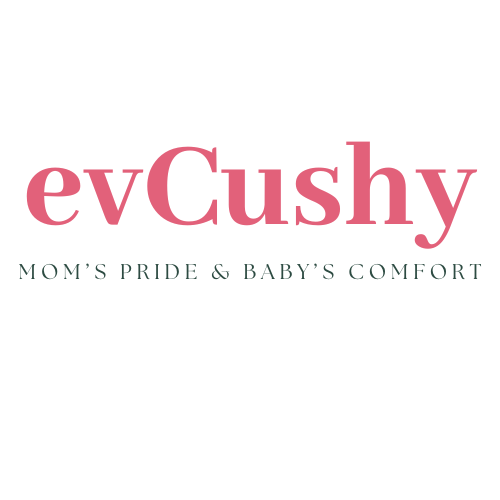
How to Help Your Newborn Sleep Without Being Held
Share
Tips for Exhausted Parents + One Mama’s Story of Hope
One of the most common – and exhausting – struggles for new parents is this: “My baby only sleeps on me.”
If you're in this stage right now, you're not alone – and more importantly, there is hope.
As a certified baby sleep consultant and part of the Evcushy community, I regularly hear from parents searching for newborn sleep help. The fourth trimester is a whirlwind of feeding, soothing, rocking, and hoping for just a few minutes of hands-free rest. If your baby will only sleep on your chest or in your arms, it can feel utterly overwhelming.
Why Some Babies Only Sleep on You
Babies are born wired for connection. After spending nine months tucked inside your warm, rhythmic womb, the outside world can feel cold and chaotic. Your heartbeat, scent, and warmth are your baby’s safest, most familiar comforts. So, it’s natural that many newborns will only settle and sleep when they are being held.
But while contact naps are beautiful, the reality is – you need rest, too. Holding your baby all day and night isn’t sustainable for your physical or emotional health. That’s why finding safe, gentle ways to help your baby settle independently is so important – and possible.
How to Transition from Holding to Independent Sleep
Here are some realistic, gentle steps you can try to help your baby learn to sleep off of you – without tears or guilt:
1. Start with Daytime Naps
Begin the transition with one nap a day in a different location, like a baby sleep pod or crib. It’s usually easier to experiment during the day when your baby is less overtired and you’re more alert.
2. Create a Calming Sleep Environment
Babies sleep best in an environment that mimics the womb. That means:
-
Dim lights
-
White noise (like shushing or a sound machine)
-
Gentle swaddling (if your baby is under 8 weeks and rolling has not begun)
-
A safe sleep space like a flat, breathable surface
3. Use a Baby Sleep Pod for Comfort and Support
This is where Evcushy comes in. A baby sleep pod offers a snug, nest-like shape that helps your baby feel secure and comforted – without needing your arms around them 24/7.
These pods can be placed inside a crib, cot, or Moses basket, and are designed to support safe sleep while helping babies feel gently held – which can dramatically reduce startles and wake-ups.
4. Stay Close and Offer Reassurance
If your baby fusses when placed down, try placing your hand on their chest, singing softly, or patting gently. Gradually reduce your involvement as your baby gets used to sleeping in their new space.
Megan’s Story: “The Pod Was an Absolute Lifesaver”
We recently heard from a beautiful mama named Megan, who was at her breaking point with her newborn’s sleep struggles:
“The only place he ever slept was on me and I couldn’t move him or he was awake screaming – it was just taking a horrible toll on me 😩. I invested in the Evcushy baby sleep pod one morning when I was at my wits' end… and instantly he settled and would nap in it.
It was amazing to be able to put him down and he wasn’t screaming – he was just sleeping 🥹🥹.
The pod was honestly an absolute lifesaver to a mama who was really really struggling and a poor baby who was beyond tired.”
Megan’s story is not unique – we hear this time and again from parents who’ve found peace and rest through the gentle support of our Evcushy baby sleep pods.
They’re especially designed to settle babies who need that extra comfort and closeness – while keeping sleep safe and supported.

You’re Not Doing Anything Wrong
If your baby only sleeps on you, it doesn’t mean you’ve created a “bad habit.” It means your baby is still learning to feel safe in the world.
With the right tools and support, you can help your baby transition to more independent sleep – and reclaim a little more peace for yourself, too.
Ready to Try a Baby Sleep Pod?
Discover our handcrafted, safe, and cozy baby sleep pods here.
Made with love and care in Europe using breathable, premium materials – Evcushy pods are designed to support both babies and their parents through the most delicate stages of early life.
